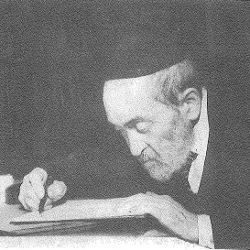
Julius (Judah David) Eisenstein (November 12, 1854 – May 17, 1956) (יהודה דוד אייזנשטיין) was a Polish-Jewish-American anthologist, diarist, encyclopedist, Hebraist, historian, philanthropist, and Orthodox polemicist born in Międzyrzec Podlaski (known in Yiddish as Mezritch d'Lita), a town with a large Jewish majority in what was then Congress Poland. He died in New York City at the age of 101. Eisenstein was a lover of Hebrew, and established America's first society for the Hebrew language, Shoharei Sfat Ever. He was also the first to translate the Constitution of the United States into Hebrew and Yiddish (New York, 1891). Other early writings of his are Ma'amarei BaMasoret, ib. 1897, and The Classified Psalter (Pesukei dezimra), Hebrew text with a new translation (1899). He also made an attempt to translate and explain a modified text of the Shulchan Aruch. He was known by many colleagues as the Ba'al ha-Otzrot ("Master of the Anthologies"). His works remain standard reference books in yeshivot, batei midrash, synagogues, and Jewish libraries to this day. (adapted from the article, "Julius Eisenstein," in Wikipedia)
Filter resources by Category
Filter resources by Tag
Filter resources by Collaborator Name
Filter resources by Language
Filter resources by Date Range
Contributed by:
Judah David Eisenstein (translation), James Madison, Aharon N. Varady (transcription)
The Bill of Rights, the first ten amendments to the Constitution of the United States of America, were first adopted in 1791. They were closely modeled on the Commonwealth of Virginia’s Declaration of Rights drafted by George Mason in May 1776. This translation, by Judah David Eisenstein was published in 1891. . . .

